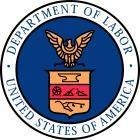The biggest problem facing small businesses is the lack of demand for their goods and services. If the Great Recession is technically over and Wall Street is booming, why haven’t small businesses seen a real increase in consumer demand? There’s a simple answer: consumers who are or could be shopping on Main Street don’t have the buying power they used to have.

In my state, per capita income has fallen by nearly three percent from five years ago. There’s a widening gap between wages and prices. A growing number of employed South Carolinians can’t even afford the basics. A new survey by a local food bank in the state capital found that 82 percent of the 9,700 households they serve each week have an employed adult. Still, they have to choose between buying food and paying their rent, and even paying for medicine.
My organization, the South Carolina Small Business Chamber of Commerce, understands that for a local community to prosper it must build its economy from the bottom up. That’s why we support raising the federal minimum wage, used by our state, to $10.10 from the current $7.25.
This will put more money in the hands of 300,000 South Carolinians who make less than $10.10 and they will spend it right here in our local economies. This minimum wage increase will also benefit another 150,000 employees who will have their wages adjusted. The resulting net $450 million increase in state GDP will be good for small businesses and good for South Carolina.
Most businesses already pay more than the minimum wage. But big box retailers and other large employers should not be paying so little that their employees need food banks and food stamps to get by.
When it comes to small businesses, some complain that restaurants in particular would be adversely impacted and would lay off workers and/or significantly increases prices. But we know from past and current experience that layoffs and prices do not spike as predicted because of mitigating factors such as increased consumer demand and cost savings from lower worker turnover.
I spoke with Chris Sommers, a very successful owner of a growing chain of restaurants who by his own account runs a very tight ship. Their experience after voluntarily raising their minimum wage to $10.10 is instructive. As anticipated they reduced turnover and the related costs of training new workers. They also reduced the inevitable costs of inexperienced employees – mistakes and product waste. Avoiding these expenses more than outweighed the incremental cost of a minimum wage increase. In addition, customers noticed the difference in worker morale and service and became more loyal. There was no need to raise menu prices and employees are being added, not eliminated.
Increasing the minimum wage is not a Red State versus Blue State issue. It’s good business. The bottom line is that it boosts consumer demand, which is how Main Street businesses grow.
Frank Knapp, Jr. is President and CEO of the South Carolina Small Business Chamber of Commerce, which represents more than 5,000 businesses in the state.



 />i
/>i

